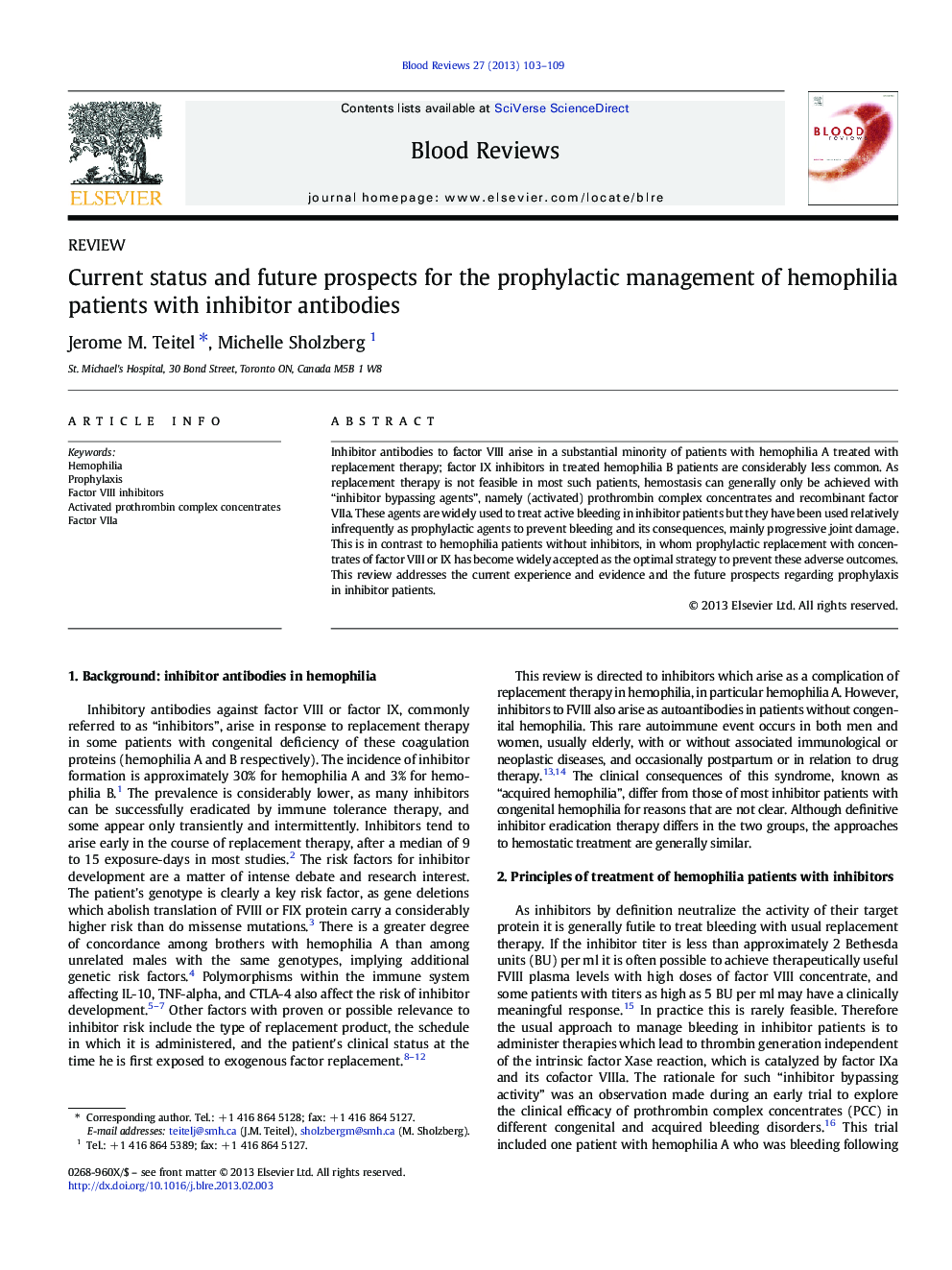| Article ID | Journal | Published Year | Pages | File Type |
|---|---|---|---|---|
| 10895775 | Blood Reviews | 2013 | 7 Pages |
Abstract
Inhibitor antibodies to factor VIII arise in a substantial minority of patients with hemophilia A treated with replacement therapy; factor IX inhibitors in treated hemophilia B patients are considerably less common. As replacement therapy is not feasible in most such patients, hemostasis can generally only be achieved with “inhibitor bypassing agents”, namely (activated) prothrombin complex concentrates and recombinant factor VIIa. These agents are widely used to treat active bleeding in inhibitor patients but they have been used relatively infrequently as prophylactic agents to prevent bleeding and its consequences, mainly progressive joint damage. This is in contrast to hemophilia patients without inhibitors, in whom prophylactic replacement with concentrates of factor VIII or IX has become widely accepted as the optimal strategy to prevent these adverse outcomes. This review addresses the current experience and evidence and the future prospects regarding prophylaxis in inhibitor patients.
Keywords
Related Topics
Life Sciences
Biochemistry, Genetics and Molecular Biology
Cancer Research
Authors
Jerome M. Teitel, Michelle Sholzberg,
